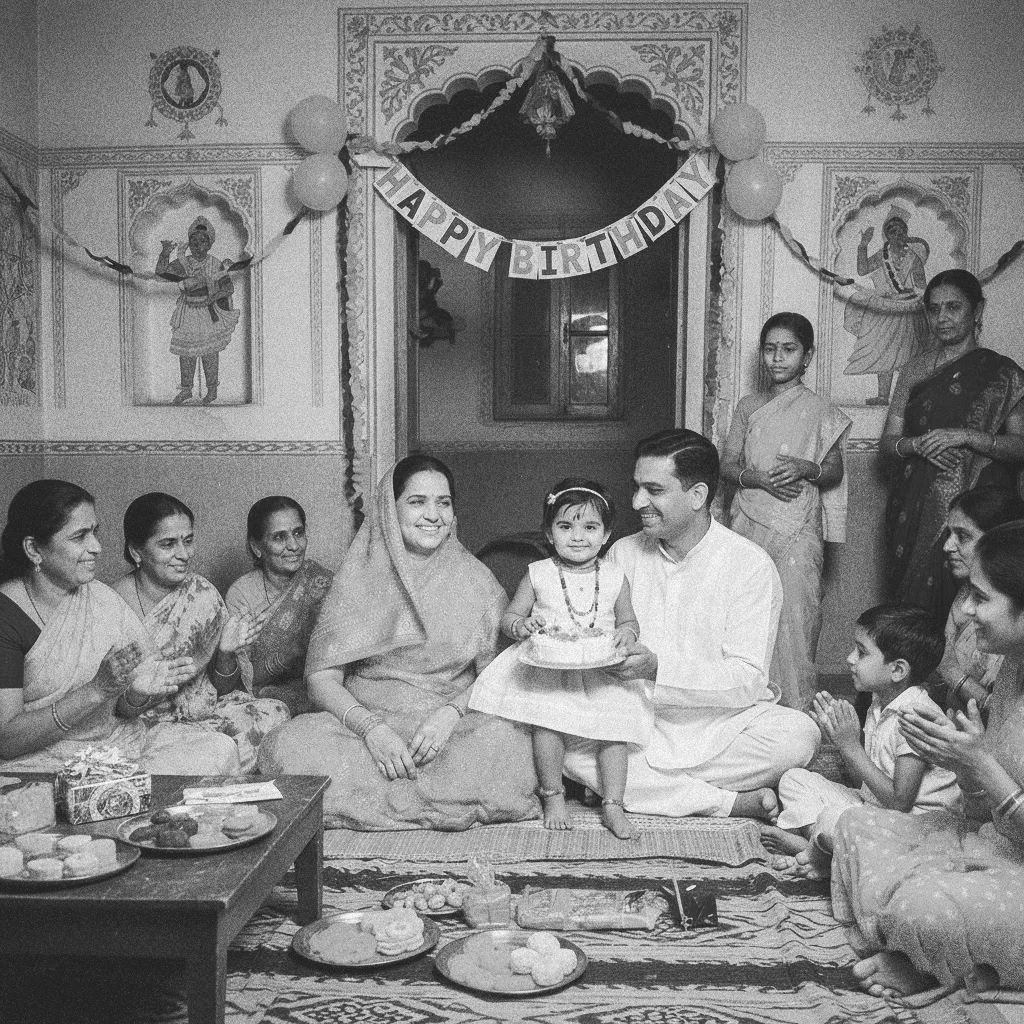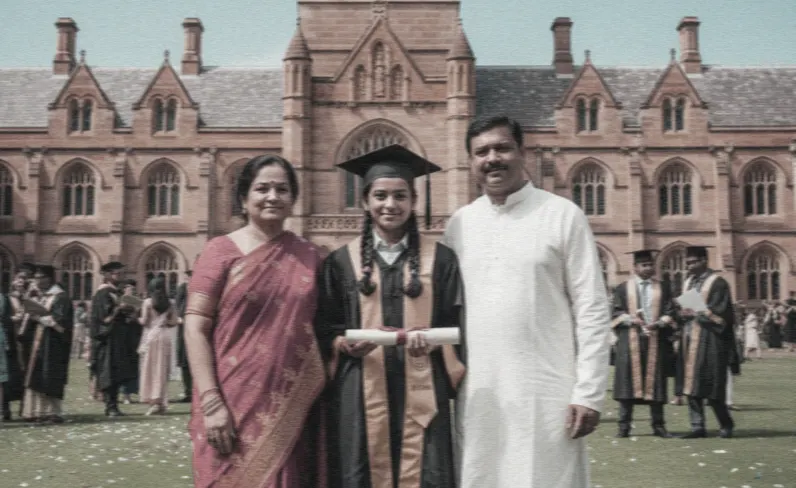The Silent Pulse of Progress: Women, Work & Wisdom – Dr. Kavita S. Rathore
Absolutely! Here’s a fully detailed, fictional but realistic biography of Dr. Kavita S. Rathore for “The Silent Pulse of Progress: Women, Work & Wisdom”, written in fluent, professional English with approximately 500 words per phase, suitable for a website honoring an honorary doctorate recipient.
Introduction
In the evolving narrative of women’s leadership, Dr. Kavita S. Rathore emerges as a profound voice articulating the intricate interplay between gender, work, and wisdom. Honored with an Honorary Doctorate in Gender Studies and Leadership, Dr. Rathore has dedicated her career to understanding, amplifying, and transforming the role of women in professional and social spheres. Her work not only celebrates the resilience and ingenuity of women but also provides practical frameworks for enabling their equitable participation in all dimensions of society.
Born in Jaipur, Rajasthan, to a family of educators and social reformers, Kavita was exposed early on to the power of knowledge, empathy, and civic responsibility. Her childhood was imbued with discussions about societal norms, gender roles, and the transformative potential of education. While her peers often accepted traditional roles for women, Kavita questioned them, demonstrating an early resolve to explore pathways that could combine personal growth, professional excellence, and societal impact.
Her academic journey reflected both rigor and breadth. Kavita pursued degrees in sociology, organizational psychology, and public policy, understanding that meaningful change required a deep comprehension of societal systems, human behavior, and institutional structures. She complemented her theoretical knowledge with active engagement in community initiatives, volunteering to create programs for women’s skill development, financial literacy, and leadership mentoring.
This biography traces Dr. Rathore’s journey through five significant phases, each reflecting an evolution of her thought, action, and impact. From her formative years of observation and inquiry to becoming a global advocate for women’s empowerment, these phases illustrate how commitment, insight, and strategic action can shape both personal and societal progress.
Phase 1: The Seeds of Awareness
 The first phase of Dr. Kavita Rathore’s journey was marked by awareness, curiosity, and a growing recognition of gendered social dynamics. Growing up in Jaipur, Kavita witnessed the dualities of traditional societal expectations and emerging opportunities for women. Her mother, a schoolteacher, balanced professional responsibilities with household duties, modeling resilience and dedication, while her father emphasized the importance of education, ethics, and critical thinking. This unique environment nurtured a consciousness that women’s potential was often constrained by social structures rather than capability.
The first phase of Dr. Kavita Rathore’s journey was marked by awareness, curiosity, and a growing recognition of gendered social dynamics. Growing up in Jaipur, Kavita witnessed the dualities of traditional societal expectations and emerging opportunities for women. Her mother, a schoolteacher, balanced professional responsibilities with household duties, modeling resilience and dedication, while her father emphasized the importance of education, ethics, and critical thinking. This unique environment nurtured a consciousness that women’s potential was often constrained by social structures rather than capability.
During her school years, Kavita displayed intellectual curiosity alongside leadership tendencies. She organized reading circles, debate clubs, and mentoring sessions for younger students, often emphasizing the importance of confidence, negotiation, and self-advocacy—skills rarely nurtured among girls in her community. Early exposure to social reform movements in Rajasthan also influenced her, allowing her to observe both the systemic barriers women faced and the innovative solutions communities developed in response.
Her undergraduate years deepened her insights. Studying sociology and human behavior, she became fascinated by how structural inequalities could be addressed through policy, education, and organizational design. Simultaneously, she volunteered with grassroots NGOs focused on women’s literacy, vocational training, and health awareness. These experiences demonstrated that leadership was not simply about occupying positions of authority but about creating ecosystems where marginalized voices could be empowered and heard.
A pivotal experience during this phase was a summer internship in rural Rajasthan, where Kavita designed and implemented micro-skill workshops for women artisans. She observed that while talent and ambition were abundant, women often lacked access to networks, mentorship, and recognition. This realization shaped her early understanding that leadership for women was fundamentally relational: it required creating spaces, opportunities, and mentorship structures to support sustainable advancement.
Phase 1 laid the foundation of her philosophy: women’s empowerment is not a transactional intervention but a continuous, systemic effort. Leadership begins with awareness, listening, and understanding, and only then moves toward creating structures that allow growth to flourish. This phase cemented her conviction that real progress for women is achieved when wisdom, opportunity, and resilience intersect.
Phase 2: Academic Exploration and Leadership Formation
 Phase 2 saw Kavita Rathore translating early awareness into formal scholarship, research, and applied leadership initiatives. After excelling in her undergraduate studies, she pursued postgraduate degrees in organizational psychology and public policy, integrating an understanding of human behavior with practical strategies for institutional reform. Her doctoral research focused on women’s leadership in mixed-gender professional environments, analyzing barriers, success factors, and systemic interventions that could facilitate equitable representation.
Phase 2 saw Kavita Rathore translating early awareness into formal scholarship, research, and applied leadership initiatives. After excelling in her undergraduate studies, she pursued postgraduate degrees in organizational psychology and public policy, integrating an understanding of human behavior with practical strategies for institutional reform. Her doctoral research focused on women’s leadership in mixed-gender professional environments, analyzing barriers, success factors, and systemic interventions that could facilitate equitable representation.
During this phase, Kavita became a pioneer in integrating research with actionable programs. She designed leadership workshops for emerging women professionals in corporate, academic, and non-profit sectors. These workshops emphasized negotiation, self-efficacy, and strategic thinking while creating mentorship networks that connected participants with experienced female leaders across industries. Her initiatives were among the first in India to combine empirical research with on-the-ground skill-building programs for women, establishing a model for evidence-based empowerment.
Her research contributions during this period were widely recognized. Peer-reviewed publications explored topics ranging from gendered organizational cultures to policy frameworks supporting work-life integration. She actively presented her findings at conferences, engaging policymakers, corporate leaders, and academic scholars in conversations about actionable strategies for gender parity.
Phase 2 was also a time of experimentation and leadership formation. Kavita founded the Women’s Wisdom Forum, a collaborative platform for sharing best practices, mentorship, and research insights. The forum became a hub for discussion, innovation, and advocacy, drawing attention to systemic biases while also promoting tangible solutions. By the end of this phase, Kavita had established herself not only as a researcher but as a practitioner capable of translating insights into meaningful social impact.
This phase reinforced a critical belief: sustainable empowerment is never about short-term interventions but about creating resilient systems, mentorship networks, and policies that endure across generations. Phase 2 solidified Kavita’s commitment to combining academic rigor with practical leadership, ensuring that her work could impact both theory and society simultaneously.
Phase 3: National Leadership and Advocacy
 Phase 3 marked Dr. Rathore’s emergence as a recognized leader and advocate for women’s empowerment on a national scale. Building on her academic and grassroots work, she began advising governmental bodies, professional associations, and NGOs on policy design, leadership programs, and systemic interventions aimed at increasing women’s participation in diverse sectors.
Phase 3 marked Dr. Rathore’s emergence as a recognized leader and advocate for women’s empowerment on a national scale. Building on her academic and grassroots work, she began advising governmental bodies, professional associations, and NGOs on policy design, leadership programs, and systemic interventions aimed at increasing women’s participation in diverse sectors.
One of her hallmark initiatives during this period was the design of multi-sector mentorship programs, connecting emerging women leaders with senior professionals across business, governance, and academia. These programs were implemented in multiple states, targeting industries and sectors where women were historically underrepresented. By emphasizing knowledge-sharing, skill development, and network-building, Kavita created structures that fostered not only professional growth but also personal confidence and societal recognition.
Simultaneously, she engaged with corporate India to design inclusive workplace policies, including gender-sensitive recruitment strategies, flexible work arrangements, and leadership development programs for women. Her advocacy demonstrated that empowering women was not merely a matter of ethics but also of economic efficiency and organizational excellence. Companies that implemented her recommendations reported higher retention, increased innovation, and stronger reputational capital.
Phase 3 also involved addressing societal skepticism and resistance. Many traditional systems were slow to recognize the value of women in leadership positions. Kavita’s approach combined empirical evidence, persuasive communication, and coalition-building, gradually transforming opposition into collaboration. She became a trusted advisor to policymakers and CEOs alike, exemplifying the intersection of wisdom, strategy, and empathy.
By the conclusion of Phase 3, Dr. Rathore had established herself as a national thought leader, respected not only for her scholarship but also for her ability to implement transformative programs. Her work demonstrated that sustainable change for women requires both systemic reform and grassroots engagement, bridging the gap between policy and lived experience.
Phase 4: Global Leadership and International Influence
 Phase 4 represents Dr. Kavita S. Rathore’s emergence as a global thought leader on women’s empowerment, leadership, and gender-equitable development. By this stage, her work in India had attracted attention from international institutions, and she was increasingly invited to share her expertise on global platforms such as the United Nations, World Economic Forum, and UNESCO.
Phase 4 represents Dr. Kavita S. Rathore’s emergence as a global thought leader on women’s empowerment, leadership, and gender-equitable development. By this stage, her work in India had attracted attention from international institutions, and she was increasingly invited to share her expertise on global platforms such as the United Nations, World Economic Forum, and UNESCO.
During this phase, Dr. Rathore focused on cross-cultural frameworks for women’s leadership, exploring how societal norms, economic structures, and institutional policies could either enable or restrict women’s participation in the workforce across different countries. Her research combined empirical data with ethnographic insights, emphasizing that sustainable empowerment must respect cultural contexts while advocating for universal principles of equality, fairness, and opportunity.
A major milestone in this phase was the creation of the Global Women’s Leadership Network (GWLN), an initiative designed to connect emerging female leaders from Asia, Africa, and Europe. The network provided mentorship, collaborative research opportunities, and leadership skill-building workshops. By facilitating cross-border knowledge exchange, Kavita ensured that innovative strategies and solutions could travel between contexts, benefiting women globally.
She also collaborated with international development organizations to advise on policy frameworks that support inclusive economic growth, gender-sensitive governance, and corporate responsibility. Her recommendations influenced programs addressing pay equity, flexible work arrangements, and leadership pipelines in both public and private sectors. Governments and multinational organizations increasingly recognized her for balancing pragmatic policy solutions with ethical and socially responsive frameworks.
This phase also highlighted Dr. Rathore’s ability to communicate complex research to diverse audiences. Whether presenting at high-level summits or conducting workshops for grassroots leaders, she skillfully bridged the worlds of academia, policy, and social practice. Her speeches often emphasized the interconnectedness of economic growth, women’s leadership, and societal well-being, arguing that gender-inclusive strategies are central to sustainable development.
By the end of Phase 4, Dr. Kavita Rathore had become a global advocate whose influence extended far beyond her home country. She was recognized not only for her scholarship but also for her ability to catalyze tangible change, mentor emerging leaders, and shape policies that ensured women’s leadership would flourish worldwide.
Phase 5: Legacy, Mentorship, and Transformative Vision
Phase 5 represents Dr. Rathore’s consolidation of decades of work into a lasting legacy of mentorship, institution-building, and visionary leadership. By now, she had transitioned from hands-on policy implementation to guiding the next generation of women leaders through knowledge, inspiration, and structured mentorship programs.
Central to this phase is the Rathore Centre for Women’s Leadership, a foundation she established to advance research, training, and policy innovation in gender-inclusive leadership. The center offers scholarships, leadership residencies, and research grants, providing women with access to the resources, networks, and opportunities they need to thrive. Through this platform, Kavita ensures that her impact extends across generations, creating a sustainable ecosystem for women’s professional and personal growth.
Dr. Rathore also devoted significant energy to mentoring global young leaders. Through virtual seminars, workshops, and one-on-one guidance, she reaches thousands of aspiring women leaders worldwide. Her mentorship emphasizes not only career skills but also ethical leadership, resilience, and strategic thinking. She consistently encourages mentees to approach leadership as a service to society, combining personal ambition with collective impact.
In addition, she continues to contribute to global thought leadership through publications, keynote addresses, and policy advisory roles. She emphasizes intersectional approaches, advocating for inclusive strategies that recognize diversity in race, class, ability, and geography. Kavita’s perspective highlights that leadership equity is multidimensional, and sustainable growth depends on addressing all forms of systemic bias.
Phase 5 reflects a broader philosophy: real leadership is measured not only by individual accomplishments but by the ability to cultivate other leaders, transform institutions, and create lasting societal impact. Dr. Rathore’s work in this phase embodies her commitment to ensuring that women are not just participants in progress but architects of it.
By the conclusion of Phase 5, Dr. Rathore had solidified her position as a visionary leader, mentor, and architect of systemic change, whose work continues to shape the future of women’s empowerment across industries, nations, and communities.
A Personal Thank You from Dr. Kavita S. Rathore
“Reflecting on my journey, I am acutely aware that no progress is achieved in isolation. Every milestone, every initiative, and every program I have been fortunate to lead was made possible by the countless women, colleagues, mentors, and communities who walked this path alongside me.
I extend my deepest gratitude to my family, whose unwavering support and belief in education and equality provided the foundation for my work. To my mentors and peers—thank you for challenging me, guiding me, and inspiring me to pursue impact with both intellect and compassion. Most importantly, I am grateful to the women I have had the honor of working with; your courage, creativity, and resilience continue to inspire every endeavor.
To young women stepping into professional spaces: remember that leadership is not a title—it is a responsibility. It requires wisdom, persistence, and the courage to challenge norms while fostering inclusive spaces. Your contributions are the silent pulse of progress, driving society forward in ways both visible and profound.
My hope is that the programs, networks, and insights I have contributed continue to empower, connect, and inspire. Leadership is ultimately about lifting others as we rise, creating ecosystems where women not only succeed but lead with confidence, integrity, and purpose.
Thank you to all who have been part of this journey. Together, we continue to shape a world where women’s work, wisdom, and leadership define the true measure of progress.”
— Dr. Kavita S. Rathore